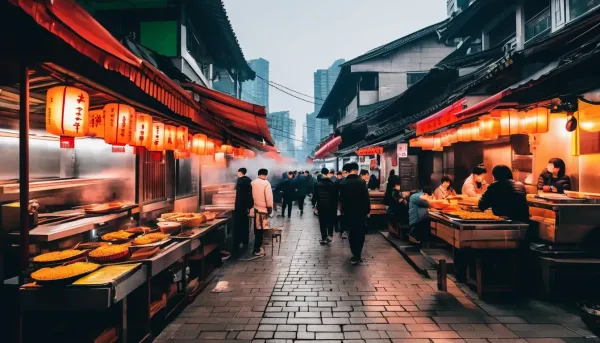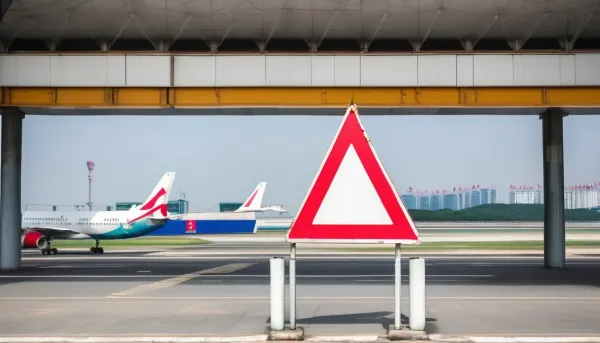Experience China Cities Like a Local
From navigating public transport and exploring local markets to savoring regional cuisines and participating in cultural practices, there is so much to discover beyond the typical tourist attractions.

China, a country with a history spanning thousands of years, offers a blend of ancient traditions and modern advancements that is unparalleled. While popular tourist destinations like the Great Wall, the Forbidden City, and the Terracotta Warriors draw millions of visitors annually, the true essence of China is best experienced by immersing oneself in its bustling cities and engaging with local culture. This article delves into how you can experience Chinese cities like a local, uncovering hidden gems, local cuisines, and cultural practices that tourists often overlook.
Embrace Public Transportation
One of the best ways to experience a city like a local is by using its public transportation. In cities like Beijing, Shanghai, Guangzhou, and Chengdu, the public transport system is highly developed and efficient. The subway is a particularly convenient way to navigate large cities.
Tips for Using the Subway
- Get a Transportation Card: Most cities offer transportation cards that can be used on subways, buses, and even taxis. In Beijing, it's the "Yikatong" card, while in Shanghai, it's the "Shanghai Public Transportation Card." These cards can be topped up easily at subway stations or convenience stores.
- Learn Basic Phrases: While major subway stations have signs in English, knowing a few basic Mandarin phrases can be very helpful. For example, “Zài nǎlǐ?” (Where is...?) and “Zhè zhàn shì shénme?” (What station is this?).
- Avoid Rush Hours: Like any major city, rush hours can be extremely crowded. Try to avoid the subway during peak times (7-9 AM and 5-7 PM) to have a more comfortable journey.
Enjoy Scenic Bus Routes
Buses in Chinese cities can take you through scenic routes that the subway might miss. For instance, in Hangzhou, the bus route around West Lake offers picturesque views. Make sure to have your transportation card ready, and don't forget to check the bus route maps at stops.
Explore Local Markets
Chinese markets are vibrant hubs of activity where you can find everything from fresh produce to unique souvenirs. Visiting these markets offers a glimpse into local life and culture.
Must-Visit Markets
- Panjiayuan Antique Market (Beijing): This massive market is perfect for antique lovers. From traditional Chinese furniture to vintage Communist memorabilia, you can find unique items here.
- Yuyuan Bazaar (Shanghai): Located near the famous Yuyuan Garden, this market is a blend of traditional and modern shops. You can buy traditional crafts, jewelry, and delicious snacks.
- Qingping Market (Guangzhou): Known for its wide variety of products, from medicinal herbs to exotic pets, this market gives a true sense of the diversity in Chinese goods.
Tips for Market Shopping
- Bargain Respectfully: Bargaining is common in Chinese markets. Start by offering about 50-60% of the asking price and negotiate from there. Always remain polite and respectful.
- Learn Key Phrases: Knowing how to say numbers and basic phrases like “Tài guì le!” (Too expensive!) can be very useful.
- Cash is King: While digital payments are becoming increasingly common, cash is still widely used in markets. Have enough small bills on hand for transactions.
Savor Local Cuisine
Chinese cuisine is diverse and varies significantly from one region to another. To truly experience China, you must delve into local foods, trying street vendors, family-owned restaurants, and traditional dishes that locals love.
Regional Specialties
- Beijing: Try the famous Peking Duck, a dish with crispy skin and tender meat, typically served with pancakes, hoisin sauce, and scallions. Another local favorite is Jiaozi (dumplings), especially during the Chinese New Year.
- Sichuan: Known for its bold flavors and use of Sichuan peppercorns, try dishes like Mapo Tofu (spicy tofu with minced meat) and Kung Pao Chicken (spicy stir-fried chicken with peanuts).
- Guangdong: Renowned for its dim sum, small bite-sized portions of food served in steamer baskets or on small plates. Visit a local tea house to experience the full range of dim sum offerings.
- Xi’an: Famous for its biang biang noodles and roujiamo (often called the Chinese hamburger), Xi’an offers hearty and flavorful street food.
Street Food Adventures
Street food is a vital part of Chinese culture, offering delicious and affordable options for any meal. In cities like Chengdu, the street food scene is vibrant and diverse.
- Night Markets: Cities like Taipei and Kaohsiung (in Taiwan) are famous for their night markets, but you can also find great options in mainland China. Try dishes like stinky tofu, grilled squid, and bubble tea.
- Food Streets: Places like Wangfujing in Beijing and Huimin Street in Xi’an are known for their street food. Here you can try a variety of snacks and local specialties in one place.
Dining Etiquette
- Chopstick Use: Practice using chopsticks before your trip. Avoid sticking chopsticks upright in a bowl of rice, as it resembles funeral rites.
- Sharing Dishes: Meals are often served family-style, with shared dishes in the center of the table. Don’t be surprised if people reach across the table with their chopsticks to grab food.
- Toasting: When dining with locals, toasts (ganbei) are common. Be prepared to drink in moderation, and if you don't want to drink alcohol, politely decline or sip slowly.
Engage in Local Culture
To truly understand Chinese cities, immerse yourself in local customs, festivals, and daily activities.
Festivals and Holidays
- Chinese New Year: This is the most important festival in China. If you visit during this time, you'll experience vibrant decorations, family gatherings, and fireworks. However, be prepared for crowded travel conditions.
- Mid-Autumn Festival: Celebrated with mooncakes and family reunions, this festival honors the moon and harvest. Many cities hold lantern displays and other cultural events.
- Dragon Boat Festival: Experience boat races and enjoy zongzi (sticky rice wrapped in bamboo leaves).
Local Practices
- Tai Chi in Parks: Early morning Tai Chi is a common sight in Chinese parks. Join a group or simply watch to appreciate this traditional practice.
- Tea Culture: Visit a tea house to experience traditional Chinese tea ceremonies. Learn about the different types of tea and the proper way to brew and drink them.
- Calligraphy and Painting: Take a class in Chinese calligraphy or painting to understand the intricacies of these ancient arts. Many cultural centers and universities offer short courses for foreigners.
Visit Historical and Cultural Sites
While major attractions are well-known, many cities have lesser-known historical and cultural sites that offer a deeper insight into local history.
Hidden Gems
- Hutongs (Beijing): These narrow alleys offer a glimpse into traditional Beijing life. Visit a local family or take a rickshaw tour to explore these historic neighborhoods.
- Water Towns (Shanghai): Near Shanghai, towns like Zhujiajiao and Tongli offer picturesque canals and traditional architecture. These towns are less crowded than tourist hotspots and provide a peaceful retreat.
- Ancient City Wall (Xi’an): While the Terracotta Warriors are a major draw, the ancient city wall of Xi’an is also worth exploring. Rent a bike and ride along the wall for a unique perspective of the city.
Museums and Galleries
- Shanghai Museum: Known for its extensive collection of ancient Chinese art, the Shanghai Museum is a must-visit for history buffs.
- Sichuan Opera (Chengdu): Attend a Sichuan opera performance to experience traditional Chinese theater. The face-changing acts and vibrant costumes are truly mesmerizing.
- Guangdong Museum (Guangzhou): This museum offers insights into the history, culture, and art of the Guangdong region. It’s a great place to learn about the local heritage.
Conclusion
Experiencing Chinese cities like a local involves embracing the everyday life, culture, and traditions that make each city unique. From navigating public transport and exploring local markets to savoring regional cuisines and participating in cultural practices, there is so much to discover beyond the typical tourist attractions. By immersing yourself in local experiences, you'll gain a deeper appreciation for China’s rich and diverse heritage, making your visit truly unforgettable. So, venture beyond the well-trodden paths and explore the vibrant life that Chinese cities have to offer.



